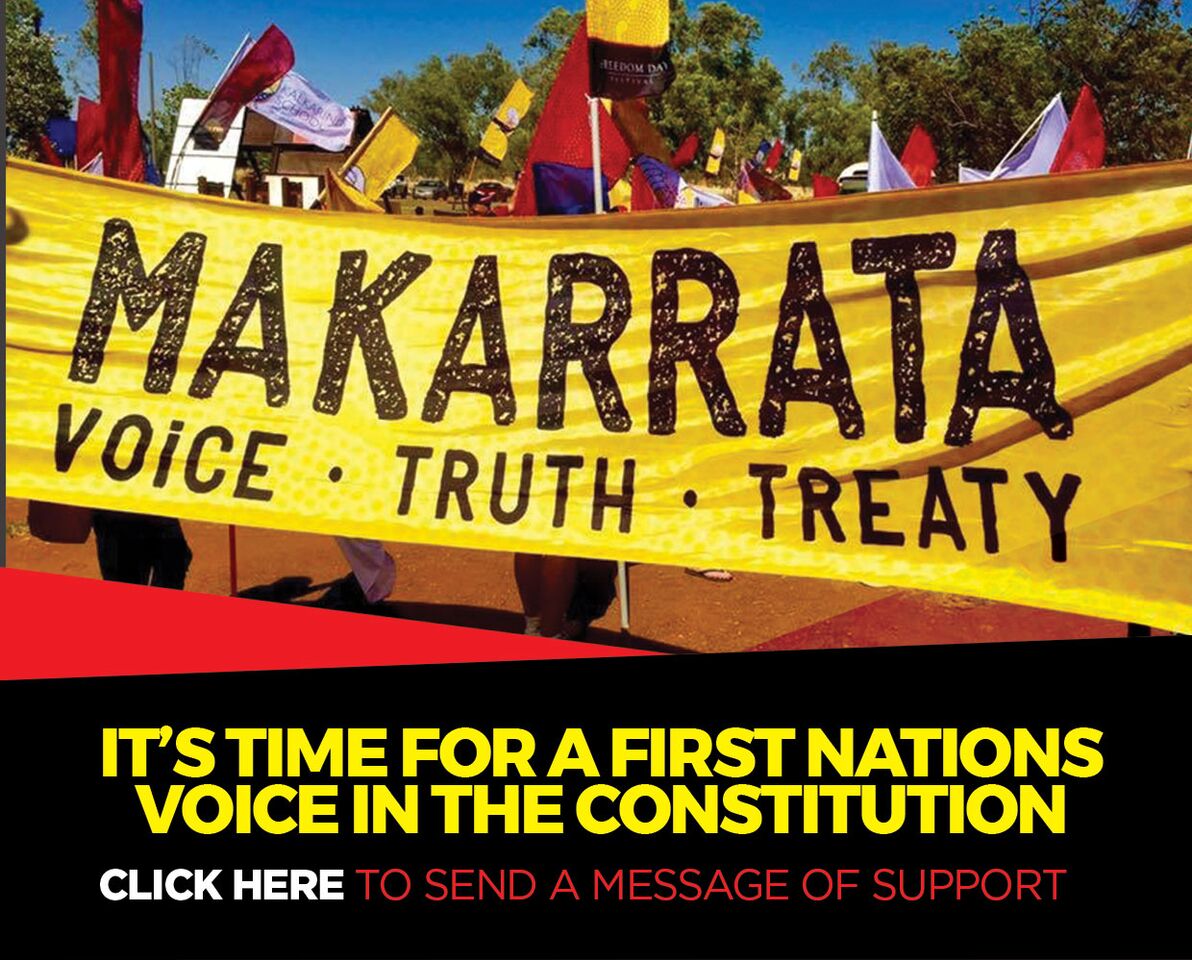
Irreconciled Australia: Indigenous Peoples
Get “A Knife to the Heart’
Rachel Withers / The Monthly
(October 16, 2023) — Reconciliation is dead, no matter what the Albanese government might say
On Saturday, Australia rejected the Uluru Statement from the Heart. The majority of Australians chose to slap away the outstretched hand, the gracious offer from a colonised peoples to “walk with us” for a better future, and instead said, “Nah, we’re good, thanks.” The pain of this rejection is palpable. Campaign leaders, many of whom have spent their lives working toward reconciliation, have entered a week of silence to “grieve this outcome and reflect on its meaning”.
“We now know where we stand in this our own country,” they wrote, adding that talk will turn from reconciliation to justice. It’s hard, as a non-Indigenous person, to fathom this level of rejection, with the vote having become a proxy on “Indigenous peoples’ right to exist in our own land”. It is, according to Kuwarra Pini Tjalkatarra elder Geraldine Hogarth, like a “knife in your heart”, and many are now pondering how to explain it to their kids.
As my co-columnist, Yorta Yorta man Daniel James, told 7am, “this is like someone has got a loudhailer right next to your ear, and they’re shouting ‘No’ time and time again”. Reconciliation is dead, as “Yes” campaign leaders warned just before the vote, with recognition off the table for the foreseeable future. (Peter Dutton, unsurprisingly, has crab-walked away from his “second referendum” idea.) Why, then, must the Albanese government insist on claiming that Australians didn’t vote against reconciliation, when that is precisely what they did?
Debate will continue for years over the various factors that contributed to the defeat of the referendum. Racism, fear, apathy, misinformation, politics, Murdoch bias, dark money and the mainstream media’s refusal to counter lies all played their part. But it was simply bizarre for Deputy Prime Minister Richard Marles to appear on Insiders on Sunday and declare that Australians hadn’t voted against reconciliation — a claim not out of place in the pages of News Corp.
“The Australian people always get it right, and we acknowledge the result of this referendum,” Marles said deferentially. “But I don’t take last night as any vote against reconciliation.” But what else could it be taken as, after Indigenous leaders, asking for very little, tried to meet the wider population in the middle and were rejected? What else could it be taken as, when Indigenous leaders said that’s exactly what it would be taken as?
Whatever non-Indigenous Australians’ reasons for voting “No” – whether grounded in racism, fear, apathy or simply not liking this particular model – they voted against a low-risk, low-effort, once-in-a-generation opportunity to listen to First Nations communities and have that listening mechanism enshrined in the Constitution.
The conservative “No” camp’s most persuasive argument, according to polls, was that this would “divide Australians by race”. It was a claim that was false on several levels: the Voice was about Indigeneity, not race, and it’s obvious there is currently an enormous gap between Indigenous and non-Indigenous lived experience. But inherent in it was the suggestion that First Peoples were not worthy of distinction in the Constitution, that Aboriginal and Torres Strait Islander culture was not something unique and worth holding space for in our founding document.

Throughout the campaign, the assimilationist talking points got louder and louder, and the word “integration” was used with increasingly frequency. In the end, the majority of Australians voted not for reconciliation but assimilation, for a campaign that told them reconciliation wasn’t even necessary.
As Indigenous rapper Briggs put it the day before the vote, Australia remains “little Britain”, a country without “a real national identity”. It’s sad to be confronted with the fact that 60 per cent of Australians like it that way, and are not interested in walking with First Nations people to create a new nation, one that recognises the 65,000 years of culture that exists here.
There is very little the 40 per cent of us who voted “Yes” can offer Indigenous Australians in this moment, other than a promise to keep standing with them, to show up for them, to donate and campaign and educate. The only comfort, if it is any consolation, is that younger generations overwhelmingly voted for that new Australia — a nation with a proud Black history and a proud Black future.
Posted in accordance with Title 17, Section 107, US Code, for noncommercial, educational purposes.